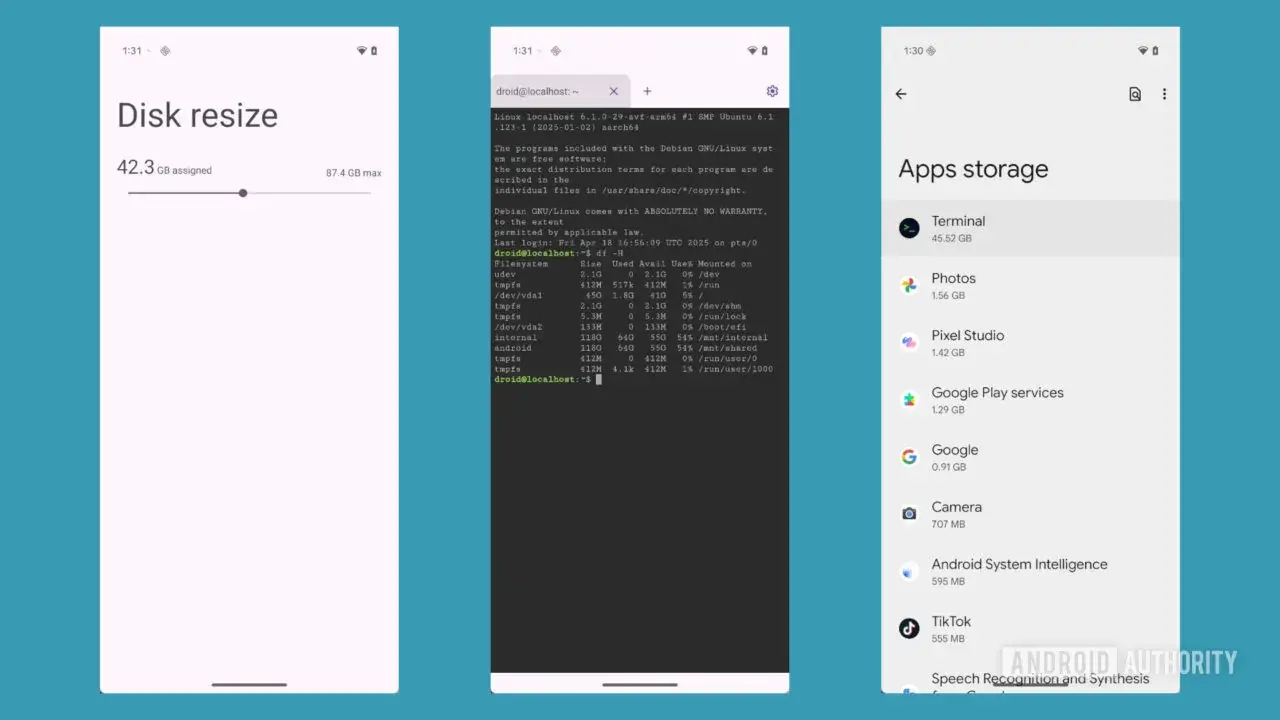
Google has introduced a new Linux terminal in the Android 16 beta, though unlike traditional terminals, this one does not interface directly with the Android system. Instead, it downloads a Debian image from the cloud, launches it within a virtual machine, and allows the user to execute commands inside the Debian environment via terminal access.
Previously, users could allocate a maximum of 16GB of disk space for the Debian system—sufficient for basic operation, but inadequate for more extensive software installations. In response, Google has revised the storage quota in the latest Android 16 beta.
The updated configuration now reserves only 1GB for the Android host system, enabling the Linux terminal to use the majority of the device’s internal storage while still preserving enough space to ensure stable Android performance.
In tests conducted by Android Authority on the Google Pixel 9 Pro, the Linux disk size was successfully expanded to 42.3GB. The resizing process took only a few seconds, and the additional space became immediately available upon restarting the virtual machine. Naturally, the corresponding reduction in Android’s available storage occurs in parallel.

According to the Android storage settings, the total footprint of the Linux terminal application combined with its configured disk space rose to 45.52GB, owing to the Debian virtual machine’s own overhead—particularly when numerous packages are installed.
Looking ahead, Google plans to eliminate the manual disk resizing option in favor of a dynamic allocation model. Under this approach, the Debian VM will be able to scale its storage usage on demand, automatically shrinking when the Android host system requires additional space. This would provide a more seamless experience, granting users expanded capacity in the VM when needed, while safeguarding Android’s stability.
Nevertheless, storage remains a finite resource. Should a user install large volumes of software on both Android and Debian, the overall storage may eventually be exhausted, compromising both environments. In such scenarios, Android—being the priority—will retain operational integrity, while Debian may be forced into a non-functional state.
Related Posts:
- Linux on Android: Google’s New Terminal Unveiled
- Google Enables Linux Terminal on Android, Running Debian in a Virtual Machine
- Google’s Android Terminal: More Linux Apps, Not a Linux Desktop
